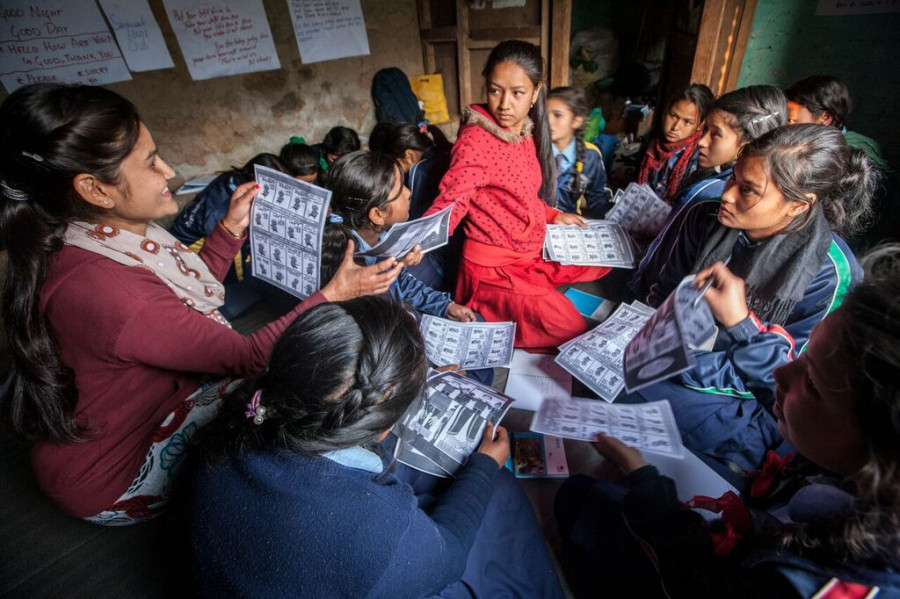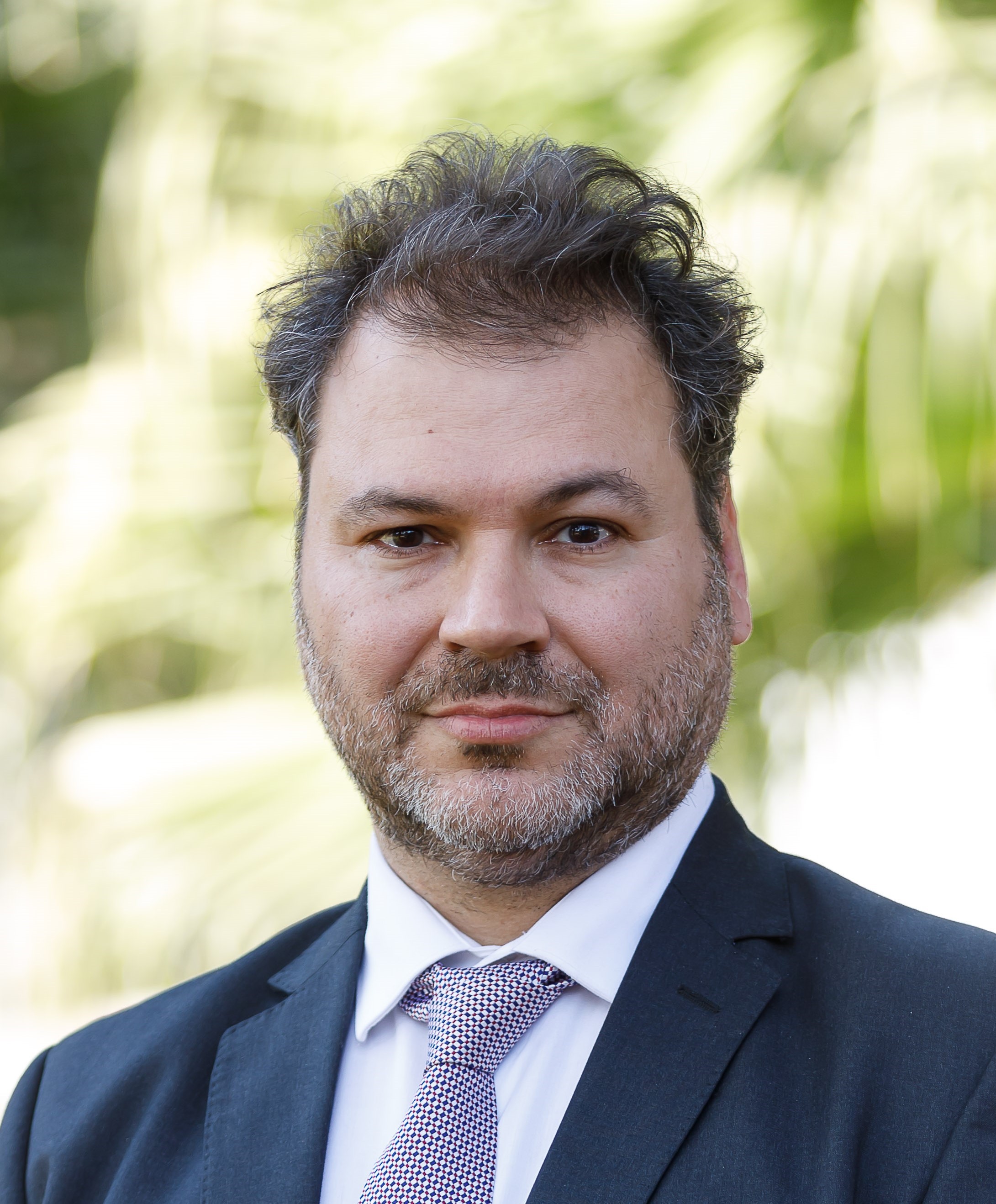Culture & Lifestyle
When girls find their voice
In communities where girls once dropped out early, the EDGE programme is helping them stay in school using English and digital skills to open new paths to learning and leadership.
Rustom Mody
In a quiet classroom perched in the hills of western Nepal, a group of teenage girls gathers after school. A laptop sits on a wooden desk. Here, girls practise English phrases and speak openly about their lives while doing activities on the laptop. Each session strengthens their confidence and a sense of agency, creating strong female leaders able to make decisions about their own future.
Across Nepal and South Asia, the English and Digital for Girls’ Education (EDGE) programme is opening doors for adolescent girls who often face the double burden of poverty and gender discrimination. In communities where early marriage is common and access to quality education remains limited, EDGE creates safe, peer-led learning spaces. Through practical activities, girls strengthen their English and digital skills while discussing key issues related to health, safety, and their rights.
Bhawana Sunar lives in Lekbesi Municipality, Surkhet, a small hamlet in far Western Nepal. EDGE, for her, was a turning point. Her parents had started preparing for her marriage, assuming it was time she left school. That expectation shifted when Bhawana joined an EDGE club at her school. Through the club, she was introduced to computers and English, and also began to understand her rights. Equipped with better English language skills and a sense of self-worth, Bhawana persuaded her parents to support her decision to stay in school. She now dreams of becoming a teacher and helping other girls gain the same confidence and independence she has found.
Bhawana’s story is common among girls attending EDGE clubs in Nepal, where 95 per cent of former participants say that their families are now more supportive of them making their own decisions, and 92 per cent feel encouraged to pursue higher education.
The EDGE programme is global and as of February 2024, had reached more than 20,000 girls across Nepal, Bangladesh, India, Pakistan, Myanmar, Afghanistan and Ethiopia. The clubs use a peer-led-model where older adolescent girls, trained as Peer Group Leaders guide younger girls through weekly sessions—building skills and cultivating a culture of mentorship and shared learning within the community.
Simrika Giri from Dhading had never used a computer before joining EDGE. She had never seen herself as a leader either. That changed when she became a Peer Group Leader. Simrika began teaching other girls to navigate digital tools, improve their English, and discuss gender equality and education rights. When Covid-19 forced school closures, Simrika found creative ways to keep the programme running. She distributed learning materials by hand and connected with participants through phone calls to reach girls at home. Over time, her initiative earned the trust of parents who had initially hesitated to let their daughters attend the sessions.
This kind of leadership, rooted within the community, is key to EDGE’s long-term impact. EDGE sessions go far beyond academic instruction. They offer girls a chance to talk about issues rarely addressed in classrooms or homes, including menstrual health, child marriage, gender-based violence, and online safety. English lessons often lead to discussions about women’s rights, while digital literacy modules create opportunities to talk about technology use and personal security. Girls like Simrika prove that young women can lead with confidence and make lasting, meaningful contributions both in their communities and beyond.
Durga Buda, from the remote Kailali district in the far Western region of Nepal, says her perception of technology changed completely. “I used a laptop for the first time as a PGL. The first thing I learnt was to type my name using a laptop.” Durga’s confidence in herself improved dramatically. She is now a fifth-semester student at Tikapur Multiple Campus.
In some rural communities, girls face entrenched gender expectations. They are expected to care for siblings, cook, and get married. Digital tools are often reserved for boys, and parents may hesitate to let girls participate in extracurricular programmes. EDGE tackles these barriers by working directly with families, schools, and community leaders.
Events such as ICT fairs, orientation sessions, and awareness campaigns encourage broader acceptance of girls’ education and technology use. As families witness the programme’s benefits, they see education as an asset rather than a disruption. This shift is measurable: 95 per cent of surveyed girls in Nepal said their families’ attitudes toward girls’ education changed positively after they joined EDGE.
The story of Rachana Bantha reflects this shift in attitude. Rachana gained confidence through her EDGE experience and went on to contest and win a seat in the Birendranagar local government. She now advocates for girls’ education and uses her platform to promote women’s participation in community decision-making.
English and digital skills are vital in expanding opportunities for girls, especially in remote areas. English connects learners to global education resources and employment markets, while digital literacy enables access to everything from online scholarships to health services. By focusing on these skills, EDGE prepares girls not only to keep up with the modern world but also to shape it.
While challenges remain, especially in reaching the most marginalised girls, the results so far point to a promising path forward; one in which young women lead the charge for change because when girls gain confidence, communities take notice. When they lead, younger girls follow. From Bhawana’s decision to stay in school to Simrika’s commitment to teaching others, from Durga’s discovery of technology to Rachana’s election to public office, the stories emerging from EDGE are about determination, learning, and resilience.
These are not isolated successes. They are part of a growing movement in which girls are taking ownership of their futures.
As Bhawana says, “Acquiring valuable skills boosted my confidence and made me believe I could make a difference.”




 9.89°C Kathmandu
9.89°C Kathmandu

.jpg&w=200&height=120)













